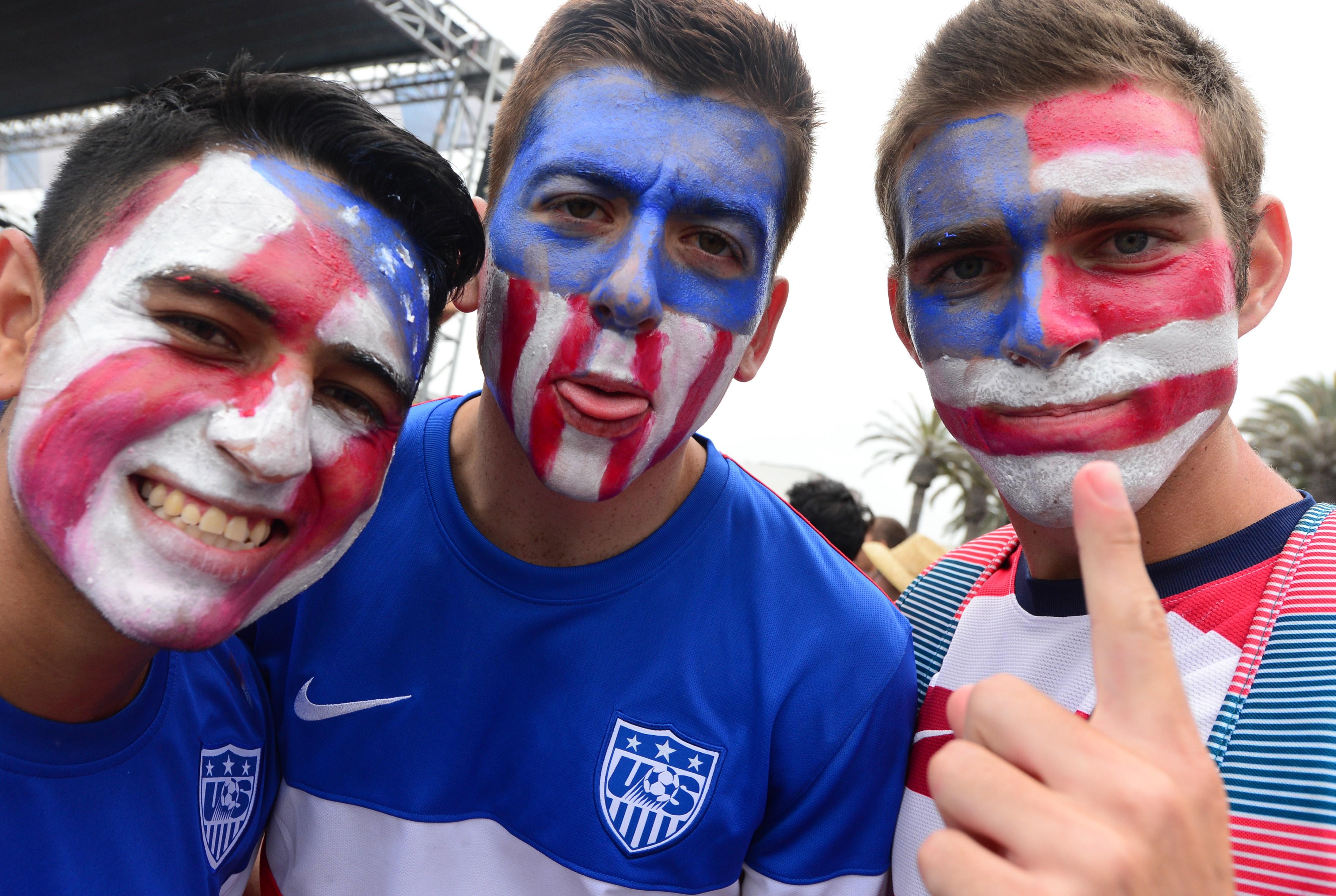It was the middle of the afternoon on July Fourth, and I was crouched awkwardly on a tiny stool in a stranger’s house, watching Brazil face off against Colombia on a tiny laptop screen. “Well,” I said, looking at the two guys sitting beside me, “this is just about the least American thing we could be doing right now.” We all laughed. Independence Day. Indoors. Piddling entertainment system. Fútbol. Unpatriotic indeed. But we all really wanted to catch that game.
Turns out, plenty of Americans felt the same. The match drew 11.84 million U.S. television viewers. Not a bad showing, considering that the World Series manages an average of 14.9 million.
Now that the World Cup has come and gone, soccer fans are left to wonder: Will America’s tournament-time infatuation with the sport turn out to be just another brief fling, or the seed of a longer love affair? The answer, I think, is that soccer is slowly but steadily gathering fans in the U.S. and will probably continue its gradual march. But for those worried about whether Americans will pay attention to the beautiful game more than once every four years, I believe the fact that fans are willing to watch on July Fourth—even without Team USA playing—presents an opportunity. It’s time to make soccer a holiday tradition. Specifically, we need to schedule a regular Independence Day grudge match against our old colonial overlords, the English.
It would be a perfect fit. July Fourth is meant to be celebrated by drinking beer while indulging in garish, flag-draped displays of nationalism. So too is international soccer. On the eve of the revolution, the United States was a ragtag upstart fighting against a vast empire. Today, we’d get to faintly relive the experience as the slight underdog on the pitch—despite England’s early exit from the World Cup, ESPN’s Soccer Power Index has them ranked No. 10 in the world while the United States is at No. 20. True, our relative positions might one day flip, but it will likely be a good, long while before the United States feels like the favorite against the soccer-mad English. We’d be taking them on at their own beloved game.
What would be in it for England? To start, national teams use friendly matches outside of major tournaments to road-test their lineups. They would also have the opportunity to market their star players in one of the world’s biggest markets—the leadership of England’s Premier League would no doubt be pleased. But far more importantly, they would get the chance to exact some sweet revenge on behalf of the crown. If we win, it’s 1776. If they win, it’s the War of 1812—at least the burning of the White House part.
A revolutionary rematch would also be a vast improvement over America’s only July Fourth sports tradition: heading to the ballpark. The issue is not whether soccer is a superior sport (each has its virtues). It’s that Major League Baseball is all about regional loyalism—Americans are united in their love of the game but divided by their home teams. Rooting against the redcoats, on the other hand, would give the entire country something to rally around aside from charred hot dogs and fireworks.
Of course, the match wouldn’t be everybody’s cup of Earl Grey.* Some conservatives instinctively distrust soccer, in part because of its international flavor, and in part because, as Peter Beinart argued in the Atlantic, the sport’s core fan base of Hispanics and young, cosmopolitan liberals in places like New York and Washington, D.C., “looks a lot like the Obama coalition.” It might be a bit much to expect wary GOP-ers to spend Independence Day celebrating a game that’s growing in popularity for the same demographic reasons Democrats keep winning presidential elections.
But if Republicans could keep an open mind, they might find plenty to like. Even a hardened, anti-soccer soul would have to see some virtue in ritually re-enacting our nation’s formative rebellion through sport and combining it with the obligatory flag waving, “U-S-A!” chants,and red-white-and-blue drink specials.
One potential hurdle: scheduling. Obviously there’s the World Cup to worry about—July 4 would be a no go every four years. The European Championship also comes around every four years—the next is scheduled to run well into July 2016. That leaves the odd years, which feature summer tournaments like the CONCACAF Gold Cup and the Confederations Cup. It won’t be easy to schedule around those competitions, but from what I could tell it would theoretically be doable. And from FIFA’s perspective, the tight calendar might even be a perk, since it would drum up American interest right around those major events.
Even if the logistics turn out to be difficult, the end result would be worth it. A biennial July Fourth match against the English would give us a holiday event for a new generation of multi-ethnic, globally aware Americans who still want to spend an afternoon at war with our ancestral rivals. We already have Thanksgiving football. It’s time for Independence Day fútbol.
*Correction, July 15, 2014: This post originally misspelled “Earl Grey” as “Earl Gray.”
